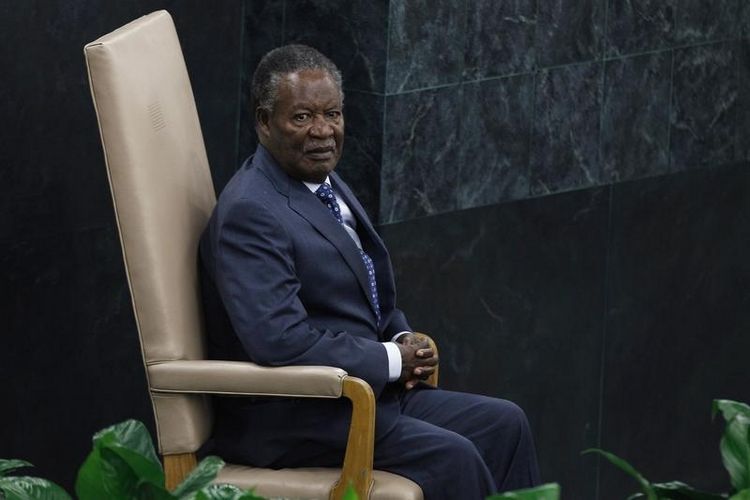Zambia will have to convince burned investors it remains an attractive credit as it markets its second bond in the international capital markets. Investors on its debut issue have suffered losses as the country’s fiscal deficit has jumped, Treasury yields have risen and copper prices have continued to retreat.
A delegation representing the sovereign, which is rated B+ by S&P and B by Fitch, is visiting accounts in the US and London over a seven-day period in a roadshow that began last Thursday.
It is doing so at a time when Zambia’s only outstanding bond is hovering around its all-time low. “[Investors] have lost a lot of money on Zambia,” said a banker not involved in the deal.
Just ahead of the new deal’s announcement last Tuesday, the 5.375% 2022 bonds were yielding well above 8%, though by Thursday morning they had rallied to 7.85%, or a bid price of 84.875, according to Tradeweb. That is just a few points higher than the 82.00 low hit in late February.
The US$750m bonds were issued at a price of 98.108 in September 2012 in the middle of a bull market for emerging bond markets following the US Federal Reserve’s announcement of a third round of quantitative easing. The deal attracted a U$12bn order book.
A sharp deterioration in Zambia’s public finances, rising Treasury yields and weaker copper prices have all contributed to the poor performance of the bonds, which have particularly struggled since last summer’s sell-off of emerging markets debt.
Zambia’s fiscal deficit climbed to 6.8% of GDP last year, according to Fitch, having averaged just 2.3% between 2005 and 2012. Fitch forecasts the deficit will continue to worsen this year to 7.2% as rising wages put pressure on spending, while revenues underperform. It will only be from 2015 that the deficit will start to fall, said Fitch.
“Perhaps it’s not the best name to reopen the African sovereign market but there will be demand; it’s just a question of price”
Fitch added, however, that Zambia’s economy is robust, forecasting GDP growth of 7.2% this year and 7% in 2015. This outlook is supported by strong infrastructure spending and continued growth in the copper sector.
Not cheap
Pricing on the new issue will depend on size and tenor, neither of which have been decided yet. However, bankers say that if Zambia were to issue a new 10-year bond, it would have to pay 8.50%–9.00%, in view of where the outstanding note is trading. “It’s not going to be cheap,” said the banker.
Another banker away from the deal said: “Maybe investors will be reticent stepping into the breach a second time, but for them it’s all about finding an entry point and it should be a better entry point this time.”
One thing that should support the deal is that it will be included in JP Morgan’s bond indices, which all the leading funds follow. Moreover, recent new issuance from emerging markets borrowers has drawn healthy order books, suggesting that investors have plenty of cash to deploy.
“It will be an interesting trade,” added the second banker. “Perhaps it’s not the best name to reopen the African sovereign market but there will be demand; it’s just a question of price.”
A yield in the 8.50%–9.00% range would put a new deal in the middle of where other similarly rated African sovereign Eurobonds are trading.
Ghana, for example, which is rated B1 by Moody’s and B by S&P and Fitch, has a 2023 note trading at a yield of 9.16%, while Rwanda, which also has Single B ratings from S&P and Fitch, has a 2023 bond quoted at 7.14%.
Meetings began in Los Angeles last Thursday and moved to San Francisco on Friday. The roadshow will continue in Boston this Monday, New York on Tuesday and Wednesday and London on Thursday and Friday.
Bank of Zambia governor Michael Gondwe is among the officials attending the roadshow. Barclays and Deutsche Bank are the lead managers.
A successful deal might spur fellow African sovereign Kenya to finally issue its debut bond. Kenya mandated banks last year but the deal has yet to emerge.
